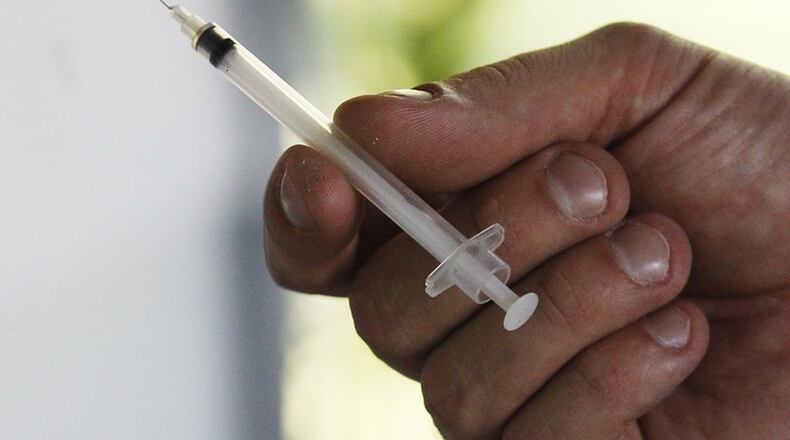RELATED: Drugs, overdoses never-ending battle for Springfield police
“There is so much good work going on to fight this opioid epidemic and with this new grant money, we can make even more of a difference, as we all work together to save more Ohioans,” DeWine said in a news release. “This opioid fight is challenging, but we can continue to make progress.”
More resources are always needed to fight the epidemic, Springfield Mayor Warren Copeland said.
“We need all the help we can get,” he said. “It’s really great to have some additional resources. Obviously it feeds into something we wanted to do anyway. This is great news.”
The grant will be administered by the police division as part of the Springfield Safe Streets Task Force, a special unit designed to battle drugs and violent crime in the city. The task force will add six new police officers as part of a recently passed income tax increase in the city that generates about $6.7 million annually.
Springfield Police Chief Stephen Moody didn’t return calls seeking comment and and Capt. Brad Moos couldn’t be reached immediately on Wednesday.
The money will be used to pay for an officer who will work with local treatment providers as part of an overdose response team, Clark County Prosecutor Andy Wilson said. The officer will also respond directly to the hospital when a person overdoses and follow-up with that person’s family within a few days, he said.
RELATED: Overdose epidemic straining Springfield first responders
“We believe that in addition to provide linkage for the addict with treatment providers, this officer will help conduct investigations into the dealers who are putting this poison onto our streets,” Wilson said.
The state funding is designed to help local agencies replicate response teams made up of law enforcement officers partnering with drug treatment providers and others who assist overdose survivors in the recovery process.
Team members typically visit survivors after an overdose and offer counseling and referrals to treatment. The teams work to reduce overdose-related deaths, reduce repeated overdoses per victim and increase the support network for survivors and their families, according to the Attorney General’s office.
Springfield received the maximum amount of grant money it was eligible for as an area with a population between 37,000 through 239,000.
A record 86 people are suspected to have died from a drug overdose this year, including 66 confirmed deaths — the majority of which involve illicit fentanyl that’s 50 to 100 times more powerful than heroin, Clark County Coroner Dr. Richard Marsh said.
MORE: Springfield churches to open recovery house for addicts
Clark County has seen nearly 800 overdoses this year, including 620 in Springfield, according to statistics provided by Wilson.
The opioid epidemic is the most common topic Copeland hears about from residents, he said.
“It’s in the minds of most of the people in the community,” Copeland said. “They’re really concerned about it in different ways.”
Some people want police to be tougher on drug abusers, he said, while others want to get people into treatment.
“It’s a big challenge,” Copeland said. “The police can do what they do, but getting people to go into treatment and having treatment available to them is key to the long-term success.
“The police can only do so much,” the mayor said. “They will try their best, but we need some of these other solutions so they don’t have to keep dealing with the same situations over and over again.”
SPRINGFIELD’S OPIOID WAR
New program seeks to reach Clark County overdose patients sooner
Petition asks Springfield leaders to charge people who overdose
Springfield coalition to host community forum on opiates
1st-of-its-kind center for addicts, families opens in Springfield
BY THE NUMBERS
86: Unconfirmed, suspected drug deaths so far this year, a record number
66: Confirmed drug deaths in 2017
800: Estimated number of drug overdoses in Clark County this year
About this series: Springfield’s Opioid War
The Springfield News-Sun has written extensively about opioid and heroin problems in Clark County in the past five years, including stories about multiple overdoses in one weekend and efforts to expand treatment options. This year, the News-Sun will take a deep dive into the community’s opioid epidemic and what local officials are doing to solve the problem.
About the Author

